By Michelle Fish
Here’s some irony for you: it’s almost impossible to find a good cup of coffee in Ethiopia. It’s the birthplace of coffee. And some of the world’s most exquisite Arabica comes from there. But the coffee in restaurants and hotels is typically foul stuff.
How can that be?
To quote James Carville: “it’s the economy, stupid.”
Facts on the Ground
By just about every measure (GDP, average income, poverty rate, etc.) Ethiopia is one of the poorest countries in the world. It is also a net importer, meaning that it buys more from the world than it sells.
Commodities, including coffee, are sold on global exchanges in hard currency, usually US Dollars. So are things vital to the country that they can’t make themselves, like medicine, car parts, and airplanes, to name a few. So, the government is very interested in anything that can bring in hard currency. And very strict about controlling the ways in which it can be used once it enters the country.
What does this mean for coffee? Simply put, they are growing some of the best coffee in the world, and they aren’t going to “waste” any of it on the domestic market. Growers are obliged to export all of their specialty grade coffee. It’s just too valuable, in terms of hard currency, to keep. And the Government has many strict systems in place to ensure that they do.
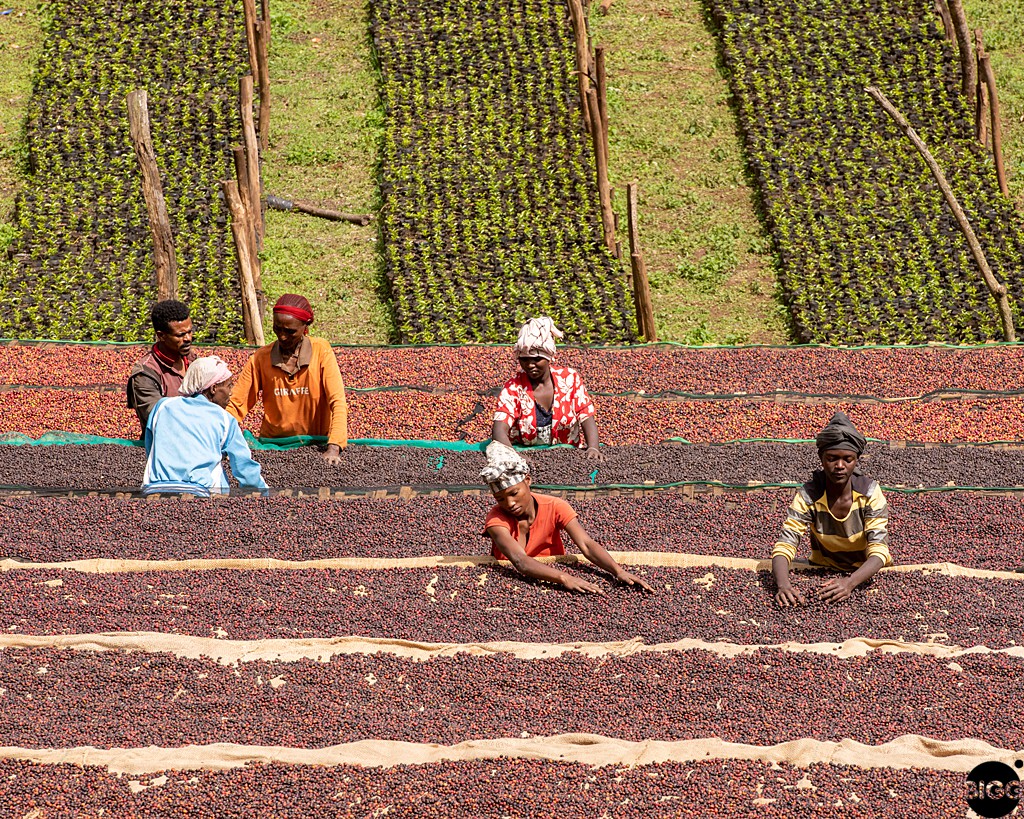
The Hard Currency Shuffle
So, what happens when an exporter sells a container of coffee? The purchaser (say, Paramount Coffee, who purchases coffee on behalf of BIGGBY COFFEE) completes the transaction in dollars. Those dollars are transferred to the exporter’s bank. But they are not deposited as dollars in the exporter’s account. At least, not the full amount.
I mentioned in Part 1: The Journey that the Ethiopian Civil War, which raged from 2020 to the end of last year, has had a significant impact on the economics of coffee. That’s because the government’s need for hard currency to keep the war going was more desperate than ever.
Before the Civil War started, a coffee exporter would get 70% of the proceeds from their sales deposited in their bank as dollars. The bank would keep the other 30% in dollars for the government’s use and deposit the equivalent value in local currency (the Birr) into the exporter’s account. The exchange rate was about 38 Birr to $1 in 2020.
That means that for every $100 from the sale, the exporter got $70 and 1,140 Birr, and the Government had access to $30 to buy the things it needs on world markets. These are pre-tax amounts, of course, because like every country in the world, the Government also takes its share in taxes and fees associated with the sale.
What it Means
So, the exporters had local currency to pay the farmers and others below them in the value chain. And hard currency that they could use however they wanted.
This was particularly useful if exporting coffee was your “side hustle” business to your main one. For instance, if you own a chain of car dealerships, you need hard currency to buy your inventory. So, running the two businesses in tandem seems like a win-win, right?
I could argue that maybe not, at least not for the farmer, but I’ll get to that in a minute.
Enter the Civil War
Shortly after the Civil War began, the Government changed its hard currency policy for coffee sales. They went to a 50%-50% model, and then later, to a 70%-30% one, which is what it is now.
That means that 30% of the proceeds are deposited to the exporter’s account as dollars and 70% percent as Birr. The official exchange rate, set by the government, is now around 56 Birr to $1, if you’re selling dollars. But you can’t buy a dollar with 56 Birr, not even at the National Bank that set that exchange rate. That will cost you a lot more. So, the Government is giving the exporter 70% of the proceeds as Birr, but at about 2/3’s of the actual value of the dollars on the street in Addis Ababa.
Again, using the $100 sales example, that means the exporter now gets $30 and 1,680 Birr. And the Government has access to $70, for which they paid 3,920 Birr, but which is actually worth a lot more on the local market.
This is squeezing a lot of money out of the coffee supply chain. And the farmer NEVER wins when that happens.
It also means that goods that require hard currency to import are getting very scarce and very expensive. The car dealership with a coffee export side hustle, in my earlier example, is now only getting $30 for each $100 sold instead $70. So, they can only buy $30 worth of cars for their dealership. And reduced supply drives up the price for the Ethiopian consumer.
While we were in Addis, our friend and host Hamdi Ahmed told us that the Government has outlawed the sale of perfume. All perfume is imported, and the Government doesn’t want precious hard currency going towards the purchase of Chanel #5. It has made perfume VERY valuable and wearing it quite the status symbol.
As a side note, I also noticed that the shelves of the liquor stores in Addis were all well stocked with imported scotch, vodka, gin, and fine wine. Make of that what you will.
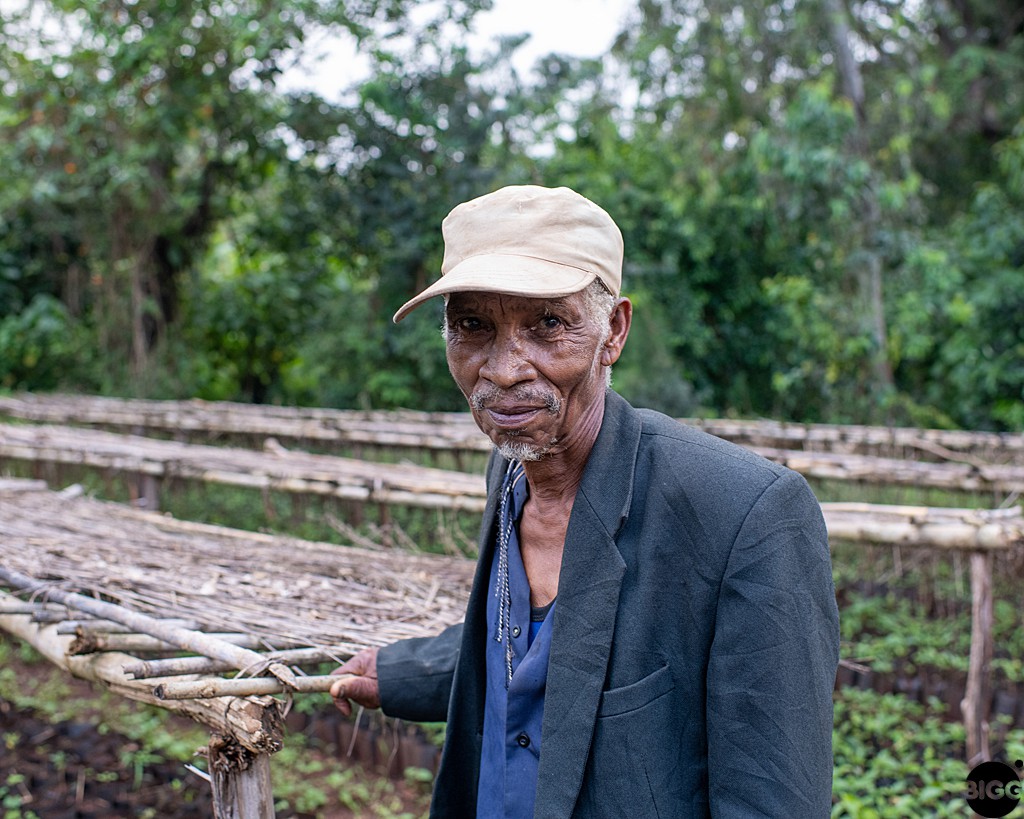
The Gate Keepers of Coffee
95% of Ethiopia’s coffee production comes from producers with less than two hectares (about 5 acres). They are working land in remote, rural areas that are desperately poor. They often don’t have any education, or access to basic services like electricity and potable water. It is a very hard life.
And while they are far away and many steps removed from the complicated math around hard currency, they are on the front lines of its economic impact.
Consider this: coffee farming, in its purest form, is nurturing the coffee plant for an entire year with hard labor until it produces ripe red or yellow cherries. A coffee cherry is exactly what it sounds like. It is a fruit, with pulp around the two precious beans in the center.
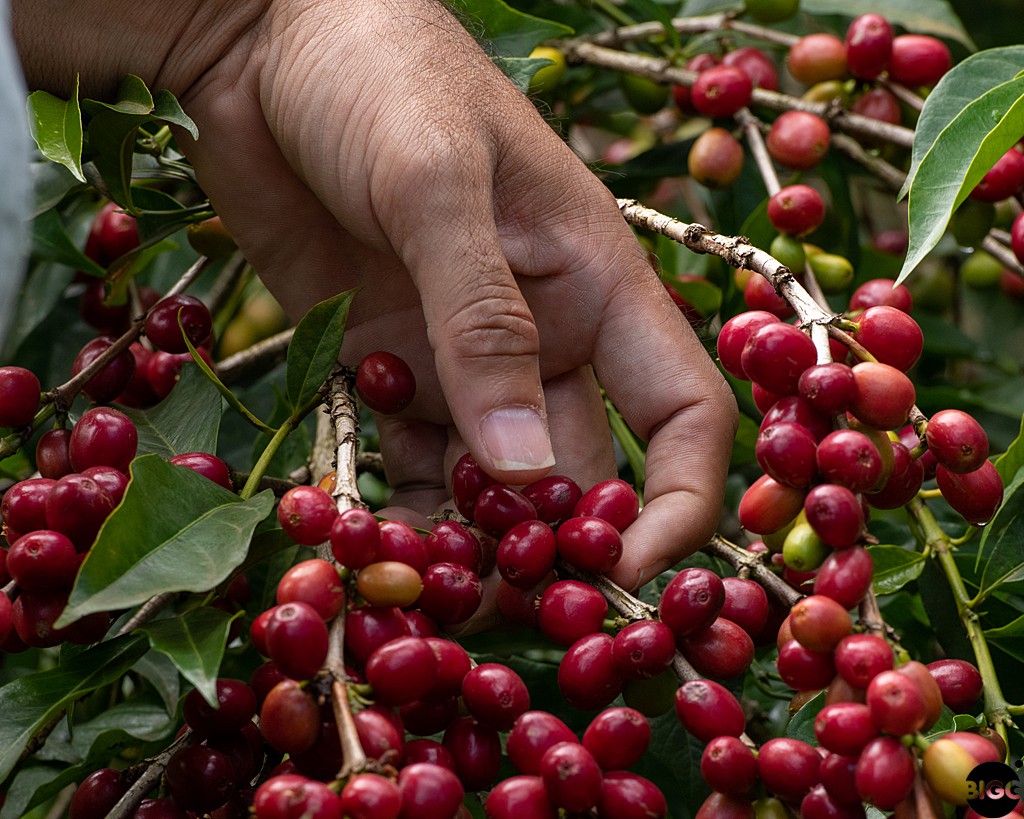
There are many, many steps coffee must go through from the point it is picked until the moment it ends up in your cup. And many of those steps require recourses – equipment, drying beds, transportation, access to good roads, wet mills, and dry mills.
The vast majority of those 95% of farmers don’t have those things. And the people who do are the gate keepers between the farmers and the market. For as long as there has been coffee production, there have been gatekeepers between the small farmers and the rest of the coffee chain. And for as long as there have been gatekeepers, they typically pay coffee farmers as little as they can get away with.
The Set Up
For the first week we were in Ethiopia, we were the guests of Hamdi Ahmed of Highland Berry Coffee Importers. On the ground in Addis, their family company name, started by their father, is Beker.
They have been in the pharmaceutical business for several decades. As you might imagine, coffee and its access to hard currency is a benefit to their business. Hamdi and his family got into the coffee business a couple of years ago by first buying a farm. Their intentions in coffee are to do better by the farmers, the workers and the communities in the Yirgacheffe region. They were excellent hosts, by the way, and we like them very much.
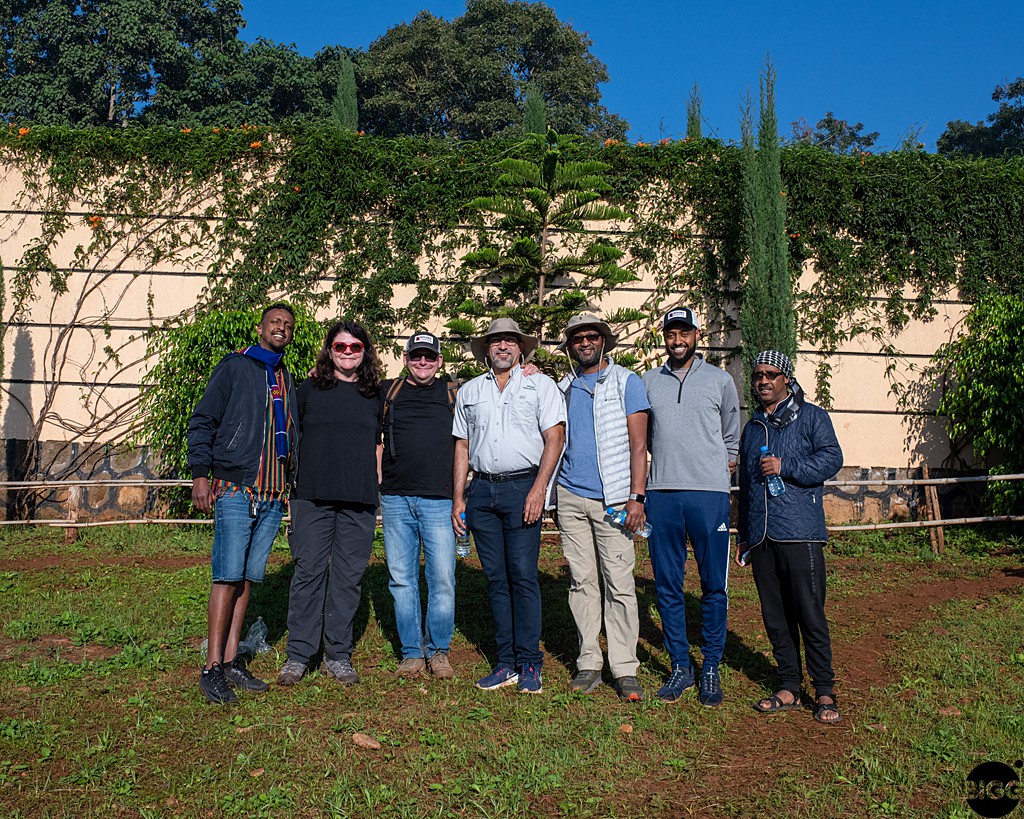
Our OBIIS cohort with the Beker/Highland Berry Coffee crew.
The second week, we were the guests of SNAP, which is a computer trading company in Addis Ababa that has also gotten into the coffee business. They, too, express what I believe is a sincere desire to do better by the farmers.
Both of these companies are engaged in a variety of support services for the small farmers, including technical assistance to help them get better yields, distribution of seedlings, pre-harvest financing, and providing access to wet mills, dry mills, and export services. They both strive to pay the farmer more for their coffee. And they have both built facilities intended to help the smaller farmers and the communities, like schools, community buildings, and the like.
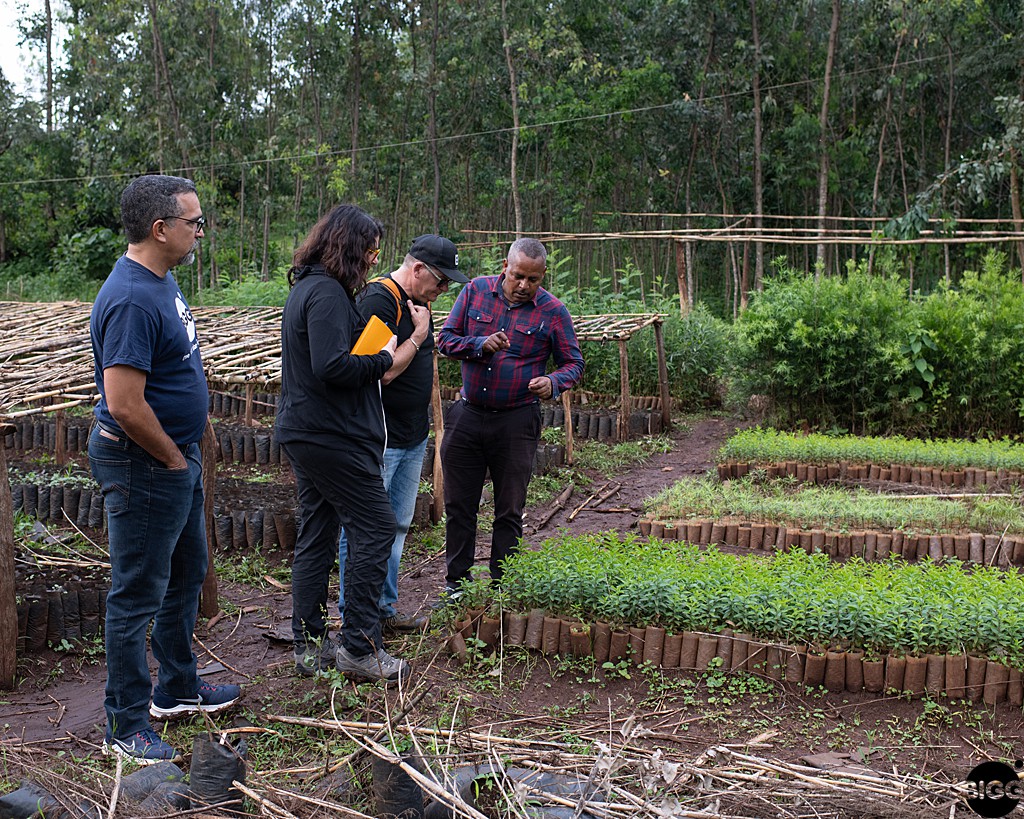
Touring a nursery with our SNAP Coordinator Admasu Site.
This all sounds good, right? So how does actually work on the ground?
Abebe Dori
We toured many wet mills and drying facilities while we were in Ethiopia. And we met many farmers that are in either the Beker or the SNAP “family” of small producers. One, in particular, stands out to me: Mr. Abebe Dori.
He is a proud man in his 50s. He is a coffee farmer, like his father before him. He has a wife, eleven children, and a mother-in-law that he supports. Eight of his kids go to school, but he keeps the three oldest out because he needs help on the farm and he can’t afford to pay for labor. He has two hectares on which he grows coffee, as well as false banana, maize, and barley. Some of those subsistence crops they keep to feed themselves, some they sell for extra income.
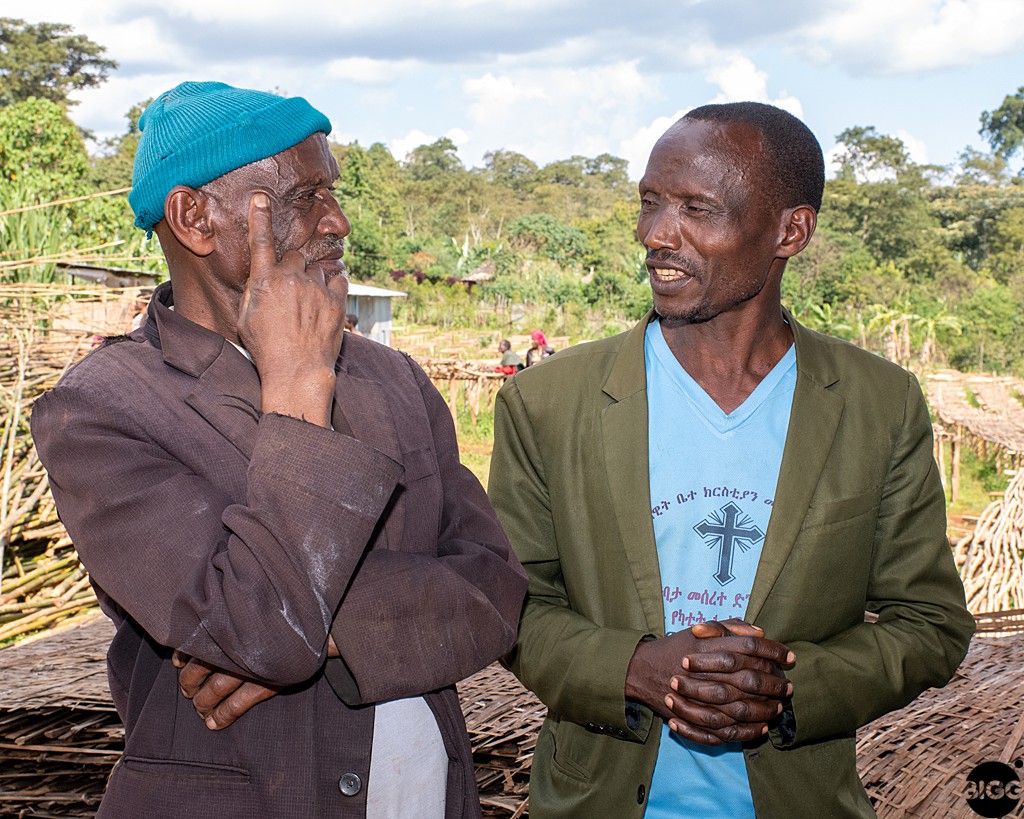
Abebe Dori (right) with his fellow smaller producer Beyere Bedaso.
Before SNAP came, he had to take his coffee two hours away by horse to sell at an average price of around 30 Birr per kilo. That’s about $0.55. Now, SNAP pays him around 54 Birr per kilo, which is about $1.00. That sounds appreciably better. But maybe not so much when you factor in how much value the Birr has lost over the last few years, and the fact that annual inflation has been north of 25% for the last several years.
SNAP is also helping him with technical expertise to increase his yield, as well as transportation for his crop.
Brass Tacks
We asked him how much he was paid for the production on his two hectares last year: 40,000 Birr, which is about $740. And then we asked him, after his costs of production, what he made: 20,000 Birr, about $370.
$370 to support a family of 11 kids, two parents, and a mother-in-law. Even in Ethiopia, that is well below the poverty line.
We asked him what he thought he should get paid for his two hectares. He said 150,000 Birr, which would be about $2,750. Everybody (but him, and us) laughed.
We asked him what he needed most. He said better roads and access to clean water.
The SNAP team added that they are building another new school. I said, “but he doesn’t need a new school. He needs clean water, better roads, and better pay.” I asked them why they didn’t just forego building another new school and give the farmers more money for their crop. Maybe even the 150,000 Birr that Abebe Dori says he needs.
Again, everybody laughed. The SNAP representative said something that chilled us all to the bone and depressed the hell out of us. This is a direct quote, according to my notes:
“You can’t give the farmer that kind of money. They don’t know how to manage their finances. They’ll just drink it away.”
And that, in a nutshell, is the fundamental problem with gatekeepers. It is at the heart of the seemingly unbreakable cycle that keeps the farmers in a prison of poverty. I truly believe that SNAP and Beker mean to do better by the farmer than has been done in the past. And in some important ways they are. But really, when it comes down to the life of the small farmer, what they’ve done is build a nicer prison with some better bells and whistles. It’s still a prison.
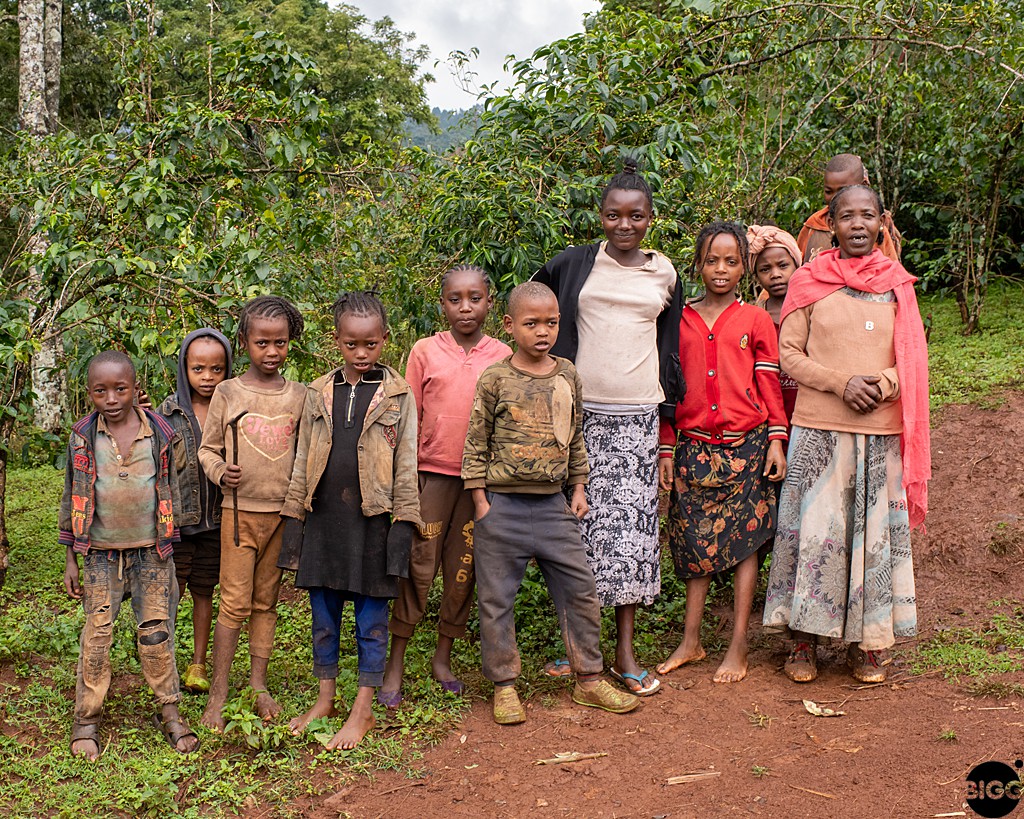
Side Note About Schools
Few things sound more virtuous than when a company tells you they are using their profits to build a school for a community. I mean, it rings all the bells… children, education, healthy environments, brighter futures. But it’s rarely that simple.
In our travels, we have seen schools that have been built by companies that tout their contribution to the community on their website and in their brochures. And we have seen what those schools look like five or six years after they were built. Typically, they are under-funded and under-resourced, if they’re still running at all. A school is just another building, unless a community and/or a government agency is committed to it and has the will and the resources to make it real and sustainable.
I asked SNAP who was staffing and resourcing the schools they are building. I got an off-handed wave, and the general answer that the regional government takes care of it. But these regional governments don’t have any resources to spare. And we didn’t come away with the impression that SNAP was responding to specific requests from the community or from the government when they make the decision about where and when to build one.
We didn’t lay our own eyes on their schools, so I am not in a position to offer an opinion about how theirs are working. We have enough experience in this world, however, to know that there is often a lot less to the story than a company would have us believe. Sometimes, it’s just a marketing ploy that resonates well with buyers half a world away.
Upending the Paradigm
So far, this is a depressing story. Truly, we got towards the end of our stay in Ethiopia, and although we enjoyed our hosts very much, and we loved the people and the experiences we shared, the coffee business felt pretty grim and the plight of the small farmer seemed intractable.
And then we met Getu Bekele.
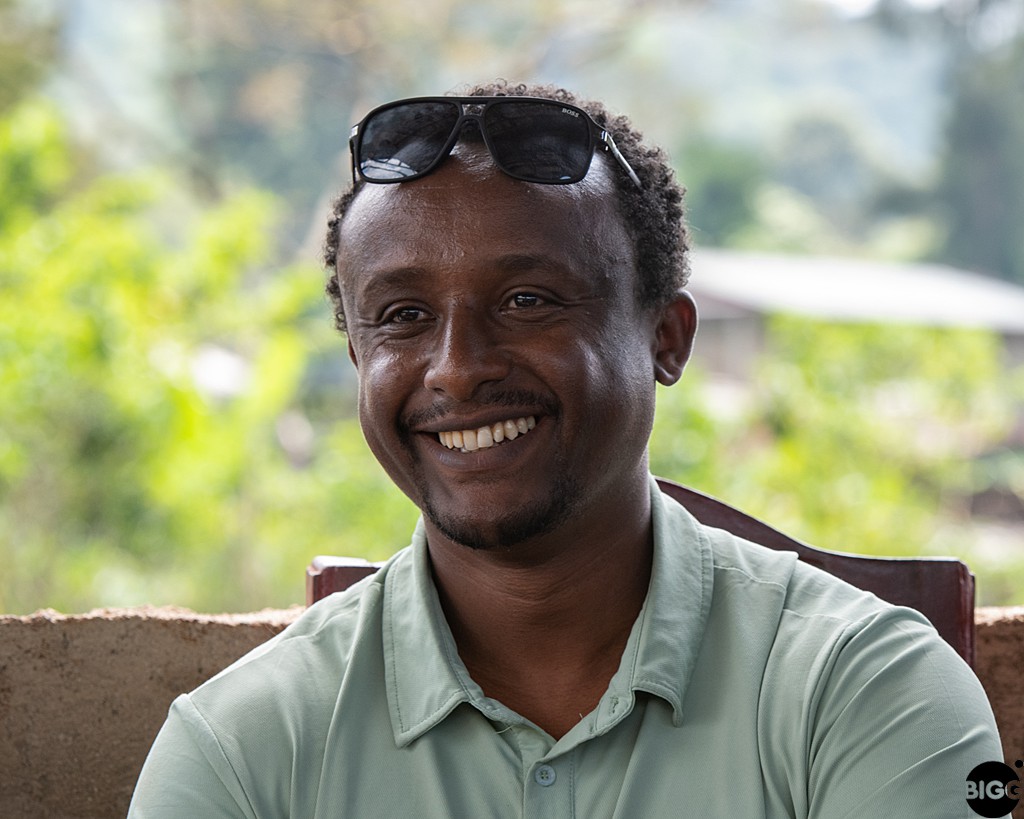
Getu Bekele
Getu has a long history in coffee. For years, he worked as a green bean buyer for Counter Culture Coffee, a roasting company in North Carolina that is committed to ethically sourcing its beans. Then a few years ago, he decided to start his own company with a radically different approach to the way the farmer gets paid.
He currently works with 87 farmers in Ethiopia, many in the Yirgacheffe region, producing coffee at the very highest end of the specialty coffee world. This is coffee that scores an 87 or higher on the Q-Grade scale. And, unlike many of the small farmers that we met, the producers he works with have access to wet mills and transportation. They get their coffee to the drymill. Getu takes over from there.
Like Beker and SNAP, he is actively providing technical assistance and investment in equipment for the farmers he works with. But what makes his approach so radical is that he guarantees, and has the transparency to prove, that the farmer receives 90% of the FOB (Freight On Board) price that he receives for the coffee. FOB is the price paid to the exporter before the coffee leaves on a boat for wherever it’s going. In our case, it would be what Paramount would pay the exporter for coffee they buy for BIGGBY COFFEE.
And because he is dealing at the very top of the quality market, his FOB price is considerably higher than standard C-Contract pricing.
By comparison, the farmers in the SNAP and Beker programs receive (based on our rough calculations) less than 50% of a lower FOB price.
He has turned the gate keeper model on its head. He is in full partnership with his producers, ensuring that they get the very best price for their coffee.
We aren’t in the market for coffee that scores 87 or above. But that doesn’t mean that we can’t figure out a way to work with Getu to get coffee in the 82-84 range that’s ethically sourced where the farmer gets paid what they deserve. Those conversations have begun. They may take a while to bear fruit. But we have great hope that we can find Ethiopian coffee that’s doing good in the world.
By the way, Ethiopia is not the only country in the world where the math doesn’t work out for the small producer. Bob talks more about that here.


